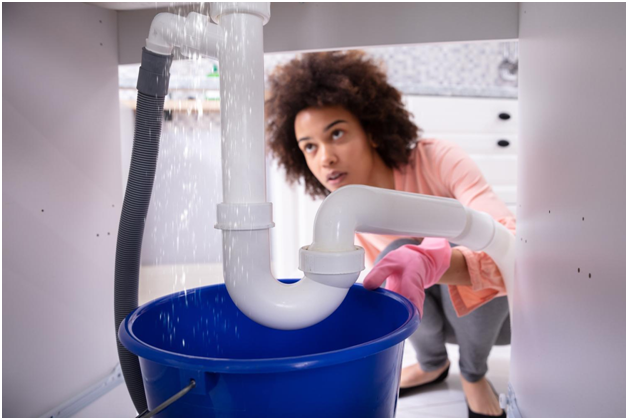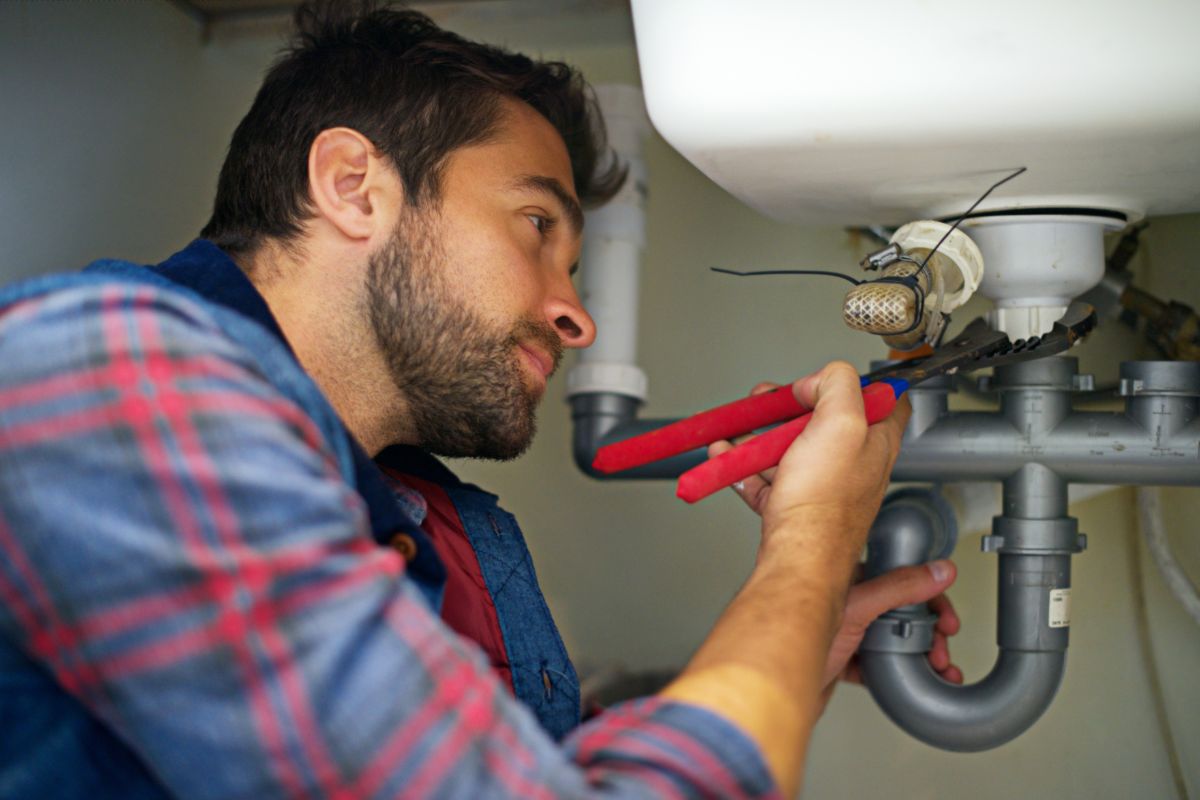Presented here down the page you can find a lot of outstanding guidance on the subject of What to Do During a Plumbing Emergency.

Plumbing emergencies can strike at any time, causing stress and possible damages to your home. Whether it's a ruptured pipe, a clogged drain, or a leaking faucet, knowing how to manage the scenario up until a specialist plumbing shows up can conserve you from more complications. This short article supplies crucial emergency situation pipes pointers to help you alleviate damage and restore control throughout a plumbing dilemma.
Turn Off the Water System
The very first step in any pipes emergency is to shut off the water system. For localized problems, such as a leaking tap or toilet, shut off the valve near the fixture. When it comes to a major leakage or burst pipe, situate your home's primary water shut-off shutoff and transform it off instantly. Recognizing the location of these shutoffs in advance can save useful time during an emergency situation.
Address Tiny Leakages with Temporary Solutions
Small leakages can rapidly come to be considerable problems if left untreated. Use these momentary fixes till professional aid gets here:
- Pipeline Tape or Epoxy Putty: Apply water-proof tape or epoxy putty to temporarily seal the leakage.
- Rubber and Clamp Method: Cover an item of rubber or an old inner tube around the leakage and protect it with a hose clamp or air duct tape.
- Containers or Towels: Area containers under the leak to have water and stop damage to floor covering or furniture.
- While these solutions aren't long-term, they can help lessen water loss and damage.
Unclog Drains Pipes Safely
A clogged up drain can be an irritating and messy problem. Here's just how to tackle it: - Use a Bettor: For sinks or toilets, a bettor can frequently displace minor clogs. Ensure you make use of the appropriate sort of plunger for the component.
- Hot Water and Meal Soap: For grease-related clogs, pour a combination of hot water and recipe soap down the drain to separate the grease.
- Avoid Chemical Drain Cleaning company: While tempting, chemical cleansers can cause more injury than excellent, especially to older pipelines.
- If these methods don't function, avoid utilizing too much force, as it might get worse the blockage.
Handle Overflowing Toilets
An overruning toilet can trigger immediate turmoil. Here's what you must do: - Stop the Water Circulation: Remove the storage tank cover and push down on the flapper shutoff to stop water from getting in the bowl. Shut off the water supply to the bathroom if necessary.
- Plunge Carefully: Make use of a toilet bettor to clear the obstruction, yet avoid aggressive plunging, which can trigger spilling or further damages.
- Have the Spill: Use towels or a wipe to clean up water swiftly to prevent floor covering damage.
Shut down Your Water Heater
In particular emergencies, such as a ruptured pipe, it's important to shut off your hot water heater. This prevents getting too hot or damage to the system when water quits streaming. Switch off the power supply to the water heater (electrical or gas) and allow it cool down to stay clear of potential dangers.
Momentarily Stop a Ruptured Pipeline
A burst pipeline can lead to considerable water damages in minutes. To minimize the issue:
- Clamp or Wrap the Pipeline: Use a pipe clamp, rubber, or air duct tape as a temporary seal.
- Draw Away Water Circulation: Preferably, draw away the water right into a bucket or basin to restrict damage to surrounding locations.
- Maintain the Area Dry: Use towels or a wet/dry vacuum cleaner to get rid of standing water.
- Call a professional plumbing technician immediately to deal with the trouble completely.
Handle Frozen Water Lines Meticulously
In cooler climates, frozen pipes are a typical emergency situation. If you suspect a frozen pipe: - Shut off the Water: Shut down the major water supply to avoid a ruptured pipeline.
- Defrost Gradually: Use a hairdryer, heating pad, or warm towels to thaw the pipeline slowly. Avoid open flames or extreme heat, as these can damage the pipeline.
- Evaluate for Leakages: Once the pipe is thawed, check for cracks or leakages prior to transforming the water back on.
Stop Additional Damages
Taking quick action to minimize damages can conserve you time and money over time. Here's how:
- Move Valuables: Eliminate furniture, electronics, and other items from the affected area.
- Use Sandbags: For flooding scenarios, place sandbags around the area to redirect water.
- Shut Off Electricity: If water has actually gotten to electric outlets or appliances, turn off the electricity to stop shocks or fires.
. Have an Emergency Situation Pipes Set
Prepare a fundamental plumbing emergency kit to handle minor issues successfully. Your kit needs to consist of:
- Adjustable wrench
- Plumbing professional's tape
- Pipeline clamps
- Towels and dustcloths
- A bettor
- Epoxy putty
- Bucket.
- Having these devices handy can make a significant distinction in your capability to manage emergency situations.
Know When to Call an Expert.
While quick fixes can help momentarily, certain pipes issues call for instant professional focus. Call a plumbing if:. - A ruptured pipe triggers considerable flooding.
- Drains pipes or toilets stay clogged regardless of your efforts.
- You see persistent leakages or water pressure concerns.
- Your water heater is dripping or malfunctioning.
- Promptly speaking to a professional makes sure the concern is fixed appropriately and prevents additional complications.
Final thought.
Pipes emergencies can be frustrating, but with the ideal expertise and tools, you can take care of the situation successfully until assistance shows up. By switching off the supply of water, addressing small leakages, and making use of short-term repairs, you can decrease damage and maintain your home safe. Bear in mind, these tips are momentary remedies; always speak with an accredited plumbing professional to deal with the source of the trouble. Prep work and quick thinking are your finest allies in any kind of pipes emergency.
Expert Tips for Emergency Plumbing Repairs
Plumbing emergencies can be incredibly stressful and inconvenient. Whether it’s a burst pipe, a clogged drain, or a leaky faucet, these common plumbing emergencies need immediate attention to prevent further damage to your home. But before you panic, it’s important to understand the basics of plumbing repairs and the steps you can take to address these emergencies. In this article, we will share some expert tips to help you navigate through these situations and minimize potential water damage.
Identifying Common Plumbing Emergencies
- Leaky pipes and faucets
- Clogged drains and toilets
- Burst pipes
- Low water pressure
- Water heater problems
Essential Tools for Plumbing Repairs
- Plunger: Useful for unclogging toilets and drains
- Adjustable wrench: Needed for tightening or loosening nuts and bolts
- Pipe wrench: Ideal for gripping and turning pipes
- Tape measure: Necessary for accurate pipe measurements
- Plumber’s tape: Helps create watertight seals
Understanding Emergency Plumbing Services
Emergency plumbing services are designed to provide immediate assistance for unexpected plumbing issues that can cause significant damage to your home, business, or health. These services are typically available 24/7 and are staffed by experienced plumbers who can quickly diagnose and repair a wide range of plumbing problems.
When a plumbing emergency strikes, time is of the essence. Whether it’s a burst pipe flooding your basement or a gas leak posing a serious risk, emergency plumbing services ensure that help is just a phone call away. These professionals are equipped with the tools and expertise to handle any situation, minimizing damage and restoring your plumbing system to proper working order.
What Constitutes a Plumbing Emergency?
- Burst pipes or water supply lines: These can cause extensive water damage and need immediate repair to prevent flooding.
- Gas leaks or suspected gas leaks: Gas leaks are extremely dangerous and require prompt attention to avoid potential explosions or health hazards.
- Sewer backups or overflows: These can lead to unsanitary conditions and significant property damage.
- Clogged drains or toilets causing water to overflow: Overflowing water can damage floors, walls, and other structures.
- Leaks or water damage causing structural damage: Persistent leaks can weaken the structural integrity of your home or business.
- No hot water or heating: A lack of hot water can be more than an inconvenience, especially in colder months.
Common Causes of Plumbing Emergencies
- Aging or corroded pipes: Over time, pipes can deteriorate, leading to leaks or bursts.
- Improperly installed or maintained plumbing fixtures: Faulty installations or lack of maintenance can result in unexpected failures.
- Tree roots or other debris infiltrating your sewer line: Roots can grow into pipes, causing blockages and backups.
- Frozen pipes or water supply lines: In colder climates, pipes can freeze and burst, leading to significant water damage.
- High water pressure or sudden changes in water pressure: Excessive pressure can strain pipes and fixtures, causing them to fail.
- Natural disasters such as floods or earthquakes: These events can disrupt your plumbing system and cause severe damage.
Steps to Minimize Water Damage
- Locate the water shut-off valve: Knowing where the valve is can help you quickly cut off the water supply to the affected area.
- Turn off the water heater: If there’s a risk of water coming into contact with the heating element, make sure to turn off the water heater to avoid potential accidents.
- Open faucets and drain pipes: By opening faucets and drain pipes, you can relieve pressure and empty any standing water.
- Collect and contain water: Use towels, buckets, or bins to collect water and prevent it from spreading to other areas of your home.
https://leecountyplumbingandwellservice.com/expert-tips-for-emergency-plumbing-repairs/

Hopefully you liked our article on What to Do During a Plumbing Emergency. Many thanks for taking a few minutes to read our post. Those who enjoyed our post if you please do not forget to pass it around. Thanks a lot for being here. Please come visit our blog back soon.
Book
Comments on “Effective Solutions for Pipe Issues: Key Steps to Take Until A Plumber Arrives”